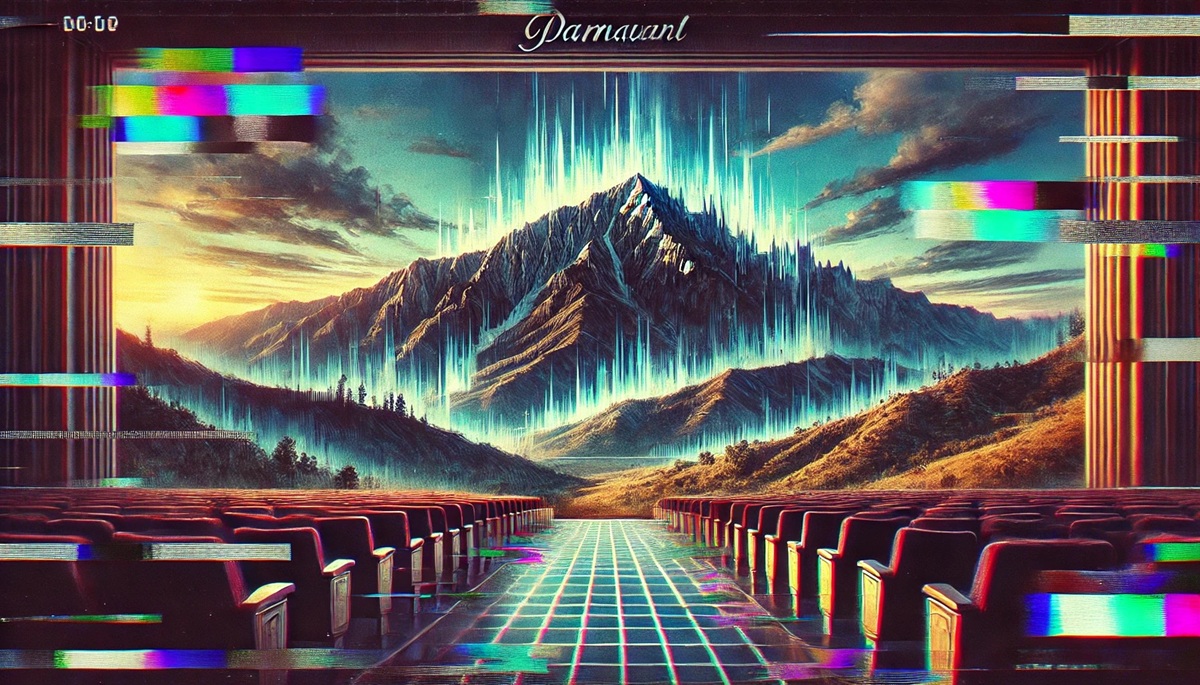In a move that has sparked significant backlash within the entertainment industry, Paramount Pictures has opted to use artificial intelligence (AI) to voice the promotional trailer for their upcoming film Novocaine. Instead of enlisting professional voice actors to narrate the trailer, the studio chose to rely on a generative AI system, leading to a wave of criticism from both fans and industry professionals. The AI-generated voice, described by many as “robotic” and “stilted,” was seen by critics as a missed opportunity to showcase human talent in a creative field that relies heavily on vocal performances.
This decision by Paramount is just the latest example of an increasing trend in Hollywood where studios are exploring the potential of AI for tasks traditionally handled by human professionals. While AI technologies have made their mark in areas like visual effects, film editing, and even scriptwriting, the use of AI-generated voices in marketing materials, trailers, and other promotional content is now coming under scrutiny.
Paramount: A Legacy of Innovation and Controversy
Paramount Pictures, one of the oldest and most well-established film studios in Hollywood, has long been associated with blockbuster franchises and groundbreaking filmmaking. The studio’s history of producing iconic films, from Star Trek to Mission: Impossible, and its willingness to embrace new technologies has helped it stay relevant in a constantly evolving industry. However, this latest move to bypass human voice actors in favor of AI has raised concerns about the studio’s commitment to maintaining industry standards and protecting creative careers.
In its decision to use AI in the promotion of Novocaine, Paramount faces criticism for not only undermining the value of voice actors but also contributing to the growing fears that AI will replace human talent in areas of the film industry traditionally associated with creativity and artistry. The backlash highlights the ongoing debate about how far AI should be integrated into the creative industries—should it be a tool to enhance human talent, or is it a threat to established careers?
The Controversial AI Voice in Novocaine
The voice generated by the AI for Novocaine’s trailer has been described as unnatural, with a lack of nuance and emotional range that typically characterizes human voice actors. Fans who watched the trailer pointed out that the robotic voice detracted from the overall tone of the promotional material, making it difficult to connect with the film’s content. For a studio like Paramount, known for producing high-budget films with high stakes, the decision to use AI instead of a real voice actor has been viewed as a serious misstep.
Industry veterans have raised concerns about the impact this could have on future projects, especially if AI becomes the norm in marketing campaigns. The movie business, which has always relied on charismatic voice actors to bring characters to life in trailers and promotional videos, is now at a crossroads. The success of Novocaine’s trailer will likely serve as a barometer for the broader use of AI in Hollywood, especially when studios like Paramount have the resources to pay for skilled voice talent but instead choose to invest in automated systems.
Other Studios Embracing AI in Trailers
Paramount is not the only studio to experiment with AI in their marketing efforts. Other major studios have also made use of artificial intelligence in various forms of promotional content, though the results have often been met with mixed reviews. For example, Disney used AI-generated voices for certain promotional materials for their films during the pandemic, particularly in markets where local voice actors were unavailable due to restrictions.
While some studios argue that AI can help reduce costs and increase efficiency, others worry about the potential loss of authenticity in promotional content. In the case of Novocaine, critics argue that the AI voice is an example of efficiency coming at the expense of the art form, with some even suggesting that the lack of a human touch will ultimately alienate audiences who expect to connect with genuine emotions through the trailer’s voiceover.
Additionally, tech companies like OpenAI and Google have made major strides in creating AI models capable of generating lifelike speech. These systems, which are designed to mimic the intonations, pauses, and speech patterns of human voices, are rapidly advancing and becoming more accessible to companies looking for a cheaper, faster alternative to hiring voice talent. However, the technology is far from perfect, and many fans have pointed out the flaws in the generated voices used in film marketing campaigns.
The Growing Fear of AI Replacing Human Talent
The controversy surrounding Novocaine’s trailer is part of a broader conversation about the role of AI in the creative industries. While AI technologies have the potential to revolutionize filmmaking, animation, and even video game development, they also raise concerns about job displacement for creatives. This fear has been exacerbated by recent labor strikes in the entertainment industry, where writers, actors, and voice actors have expressed concerns over the increasing reliance on AI in scriptwriting and voice performance.
In the case of voice actors, the growing prevalence of AI in promotional content and film production has sparked worries that their work could be replaced by machines. For many, voice acting is not just about reading lines; it’s about conveying emotions, infusing characters with personality, and connecting with audiences on a deeper level. AI may be able to replicate some aspects of voice performance, but it cannot replicate the creativity, intuition, and emotional intelligence of a skilled human voice actor.
The recent strike by the Writers Guild of America (WGA) also highlighted the growing fear that AI could be used to generate scripts, pushing human writers out of the equation. Similarly, in the realm of voice acting, AI-generated voices have been shown to be capable of mimicking the cadence and inflection of real actors, but they still fall short when it comes to conveying the subtleties of human emotion and expression. As AI technology advances, these concerns are only expected to grow.
The Novocaine Movie: A Look Into Its Plot and Themes
While the controversy surrounding Paramount’s decision to use AI in the promotion of Novocaine has garnered significant attention, it’s important not to overlook the film itself. Directed by a talented team and poised to explore interesting themes, Novocaine looks to offer a unique cinematic experience that pushes boundaries in more ways than one.
At its core, Novocaine is a psychological thriller that delves into the complicated, often dark, nature of the human mind. The story revolves around a protagonist caught in a web of deception, manipulation, and psychological tension. With a plot that promises to keep audiences on the edge of their seats, Novocaine explores the fragility of trust, the limits of personal integrity, and the human tendency to grapple with difficult truths.
The film takes place in a visually arresting world that balances realism with stylistic flourishes, creating a mood of unease that will likely intensify throughout the film. Cinematically, the movie aims to blend psychological drama with elements of suspense and mystery, offering a multifaceted approach to storytelling. Though the movie’s details are still under wraps, it’s clear that Novocaine is set to leave a lasting impression on viewers.
A Wake-Up Call for the Entertainment Industry
The controversy surrounding Paramount’s use of AI in the Novocaine film promo serves as a stark reminder of the growing role that AI plays in shaping the entertainment landscape. As Hollywood navigates this new frontier, the conversation will undoubtedly continue about the impact of AI on creative jobs and the authenticity of storytelling. While AI has the potential to streamline production processes and reduce costs, its use must be handled with care, ensuring that it complements the work of human artists rather than replacing them entirely.
The Novocaine promo marks a turning point in the discussion of AI’s role in Hollywood, and it’s up to the industry to determine how it will move forward in a way that respects the contributions of all artists—human and machine alike.

